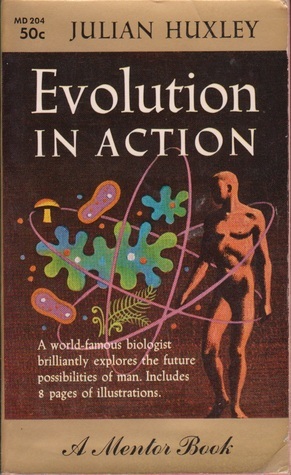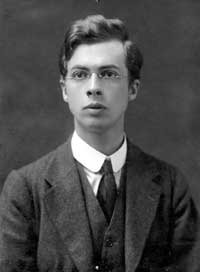
Starting with the first one-celled organisms, a world famous biologist analyzes the broad processes of evolution: the pattern of genetic structure; the formation, adaptation, and specialization of species; heredity; mutations; and natural selection—in short, the mechanisms and principles common to all life. Passing from the general to the specific, he lucidly explains how, in advancement toward general efficiency, new capacities appear, such as the ability to fly or to learn by experience—capacities that may lead a species to a blind alley of specialization, or to further progress, or even (uniquely with man) to a point where the species may learn how to control the course of its own development.
Author

In 1887, Julian Huxley, the brother of novelist Aldous Huxley and the grandson of agnostic biologist Thomas Henry Huxley, was born in Great Britain. Educated as a biologist at Oxford, he taught at Rice Institute, Houston (1912-1916), Oxford (1919-25) and Kings College (1925-1935). An ant specialist (he wrote a book called Ants in 1930), Huxley became Secretary of the Zoological Society of London (1935-1942), and UNESCO's first general director (1946-1948). A strong secular humanist, Huxley called himself "not merely agnostic . . . I disbelieve in a personal God in any sense in which that phrase is ordinarily used. . . I disbelieve in the existence of Heaven or Hell in any conventional Christian sense." (Religion Without Revelation, 1927, revised 1956.) Huxley was an early evolutionary theorist, with versatile academic interests. Some of his many other books include: Essays of a Biologist (1923), Animal Biology (with J.B.S. Haldane, 1927), The Science of Life (with H.G. Wells, 1931), Thomas Huxley's Diary of the Voyage of the HMS Rattlesnake (editor, 1935), The Living Thoughts of Darwin (1939), Heredity, East & West (1949), Biological Aspects of Cancer (1957), Towards a New Humanism (1957), and Memories, a two-volume autobiography in the early 1970s. Huxley was knighted in 1958 and was also a founder of the World Wildlife Fund. Huxley was well known for his presentation of science in books and articles, and on radio and television. He directed an Oscar-winning wildlife film. He was awarded UNESCO's Kalinga Prize for the popularisation of science in 1953, the Darwin Medal of the Royal Society in 1956, and the Darwin–Wallace Medal of the Linnaean Society in 1958. He was also knighted in that same year, 1958, a hundred years after Charles Darwin and Alfred Russel Wallace announced the theory of evolution by natural selection. In 1959 he received a Special Award of the Lasker Foundation in the category Planned Parenthood – World Population. Huxley came from the distinguished Huxley family. His brother was the writer Aldous Huxley, and his half-brother a fellow biologist and Nobel laureate, Andrew Huxley; his father was writer and editor Leonard Huxley; and his paternal grandfather was Thomas Henry Huxley, a friend and supporter of Charles Darwin and proponent of evolution. His maternal grandfather was the academic Tom Arnold, his great-uncle was poet Matthew Arnold and his great-grandfather was Thomas Arnold of Rugby School. More: http://philosopedia.org/index.php/Jul... http://en.wikipedia.org/wiki/Julian\_H...